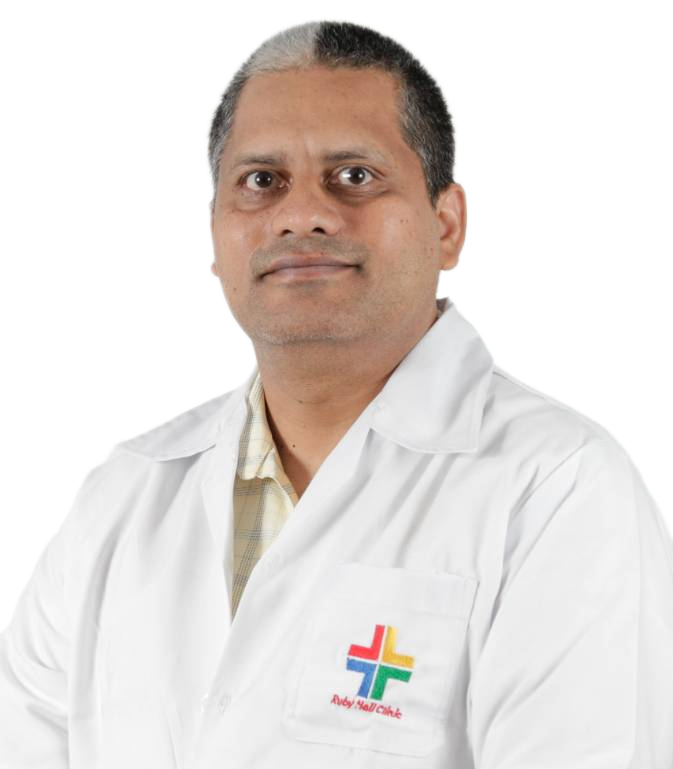
At Ruby Hall Clinic, we believe that accurate diagnostics form the backbone of effective healthcare. It is the vital first step in the journey towards healing, empowering doctors to make informed decisions and tailor treatments with precision. Our Radiology Department plays a pivotal role in this process, acting as the bridge between detection and recovery.
Ruby Hall Clinic is proud to offer one of the most advanced radiology setups in India—services that are only available at a handful of hospitals across the country. From state-of-the-art imaging technologies to innovative techniques, we deliver world-class diagnostic solutions that support even the most complex cases.
With cutting-edge infrastructure and a highly experienced team of radiologists, we excel in providing insights that guide even the most complex medical cases. From early detection of diseases to guiding intricate interventional procedures, our Radiology Department is an integral part of Ruby Hall Clinic’s comprehensive care system.
At the heart of everything we do is our dedication to patient-centric care. Every scan, every image and every diagnosis is delivered with accuracy, efficiency and empathy. As pioneers in medical imaging, we continue to redefine diagnostics, setting benchmarks for the future of healthcare in India.

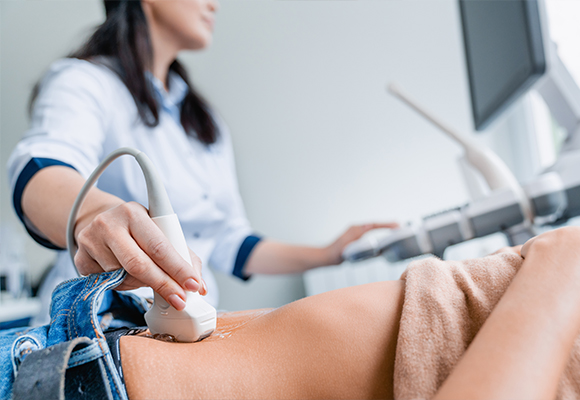
When it comes to diagnostics, precision is everything. At Ruby Hall Clinic, we understand that accurate imaging is the foundation of exceptional medical care. Our Radiology Department combines cutting-edge technology, globally benchmarked standards and a compassionate approach to ensure you receive the highest quality of care. Trusted by generations, we are the first choice for patients and referring doctors seeking unparalleled diagnostic excellence.
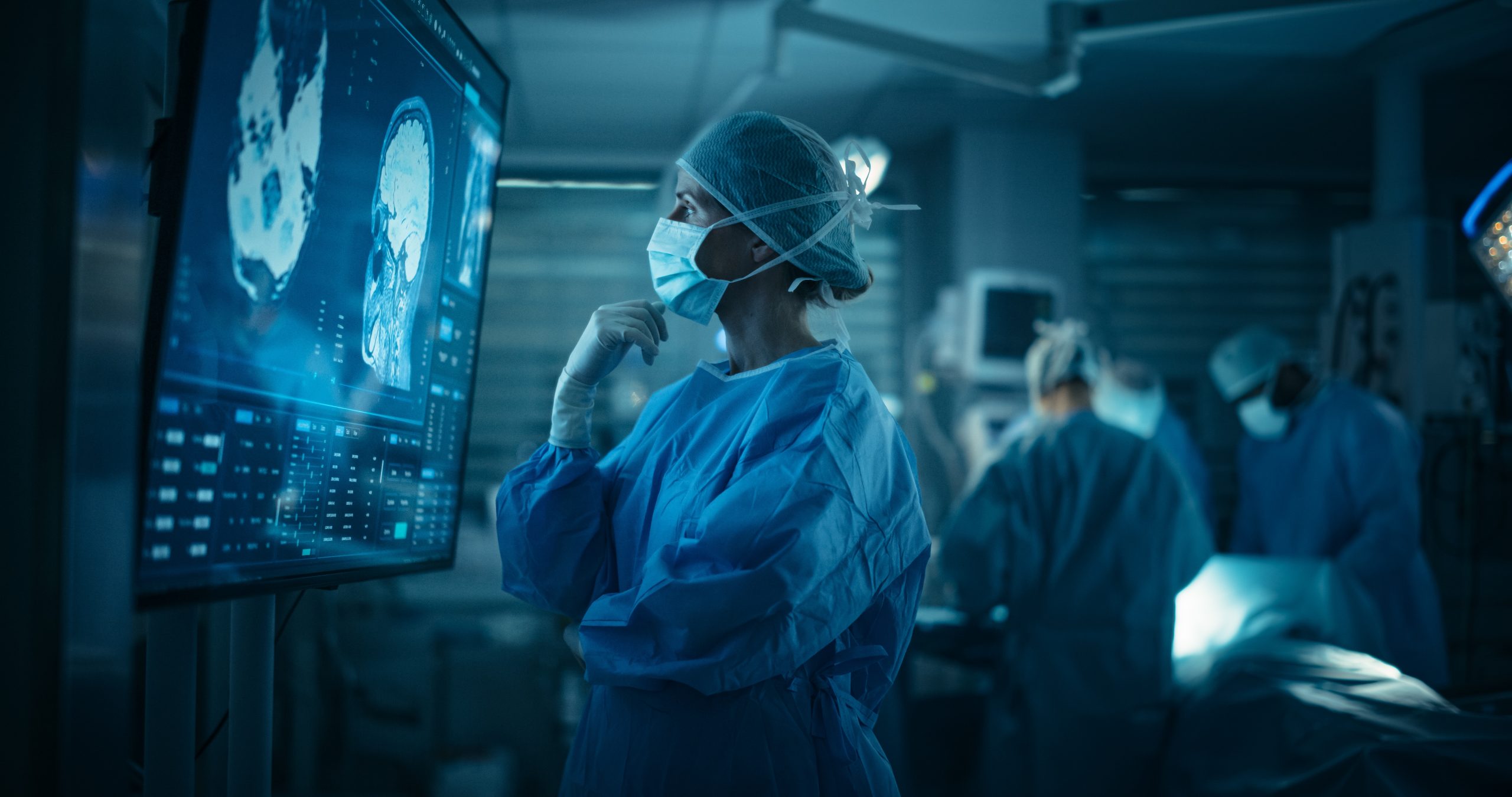
We harness the power of the most advanced imaging systems available. From 3T MRIs offering unmatched image clarity to low-radiation CT scanners that prioritise safety, our infrastructure is second to none. Ruby Hall Clinic is one of the few hospitals in India equipped with these innovations, allowing us to deliver precision diagnostics for even the most complex cases.

Our radiology services cater to a wide range of medical disciplines, ensuring comprehensive diagnostic support:
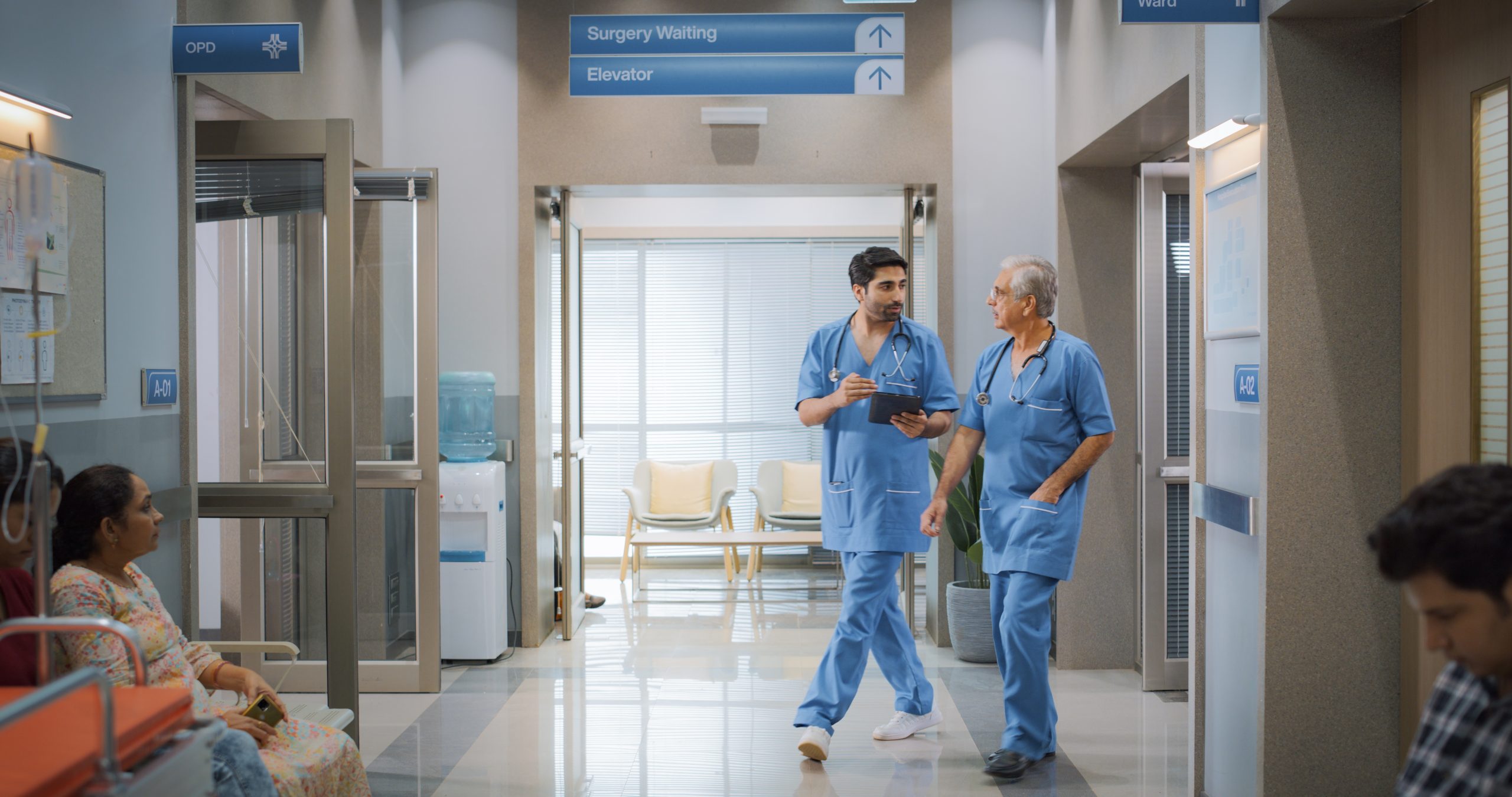
Numbers don’t lie and ours are a testament to our expertise:
These figures reflect not just our experience but also the trust patients and doctors place in us.
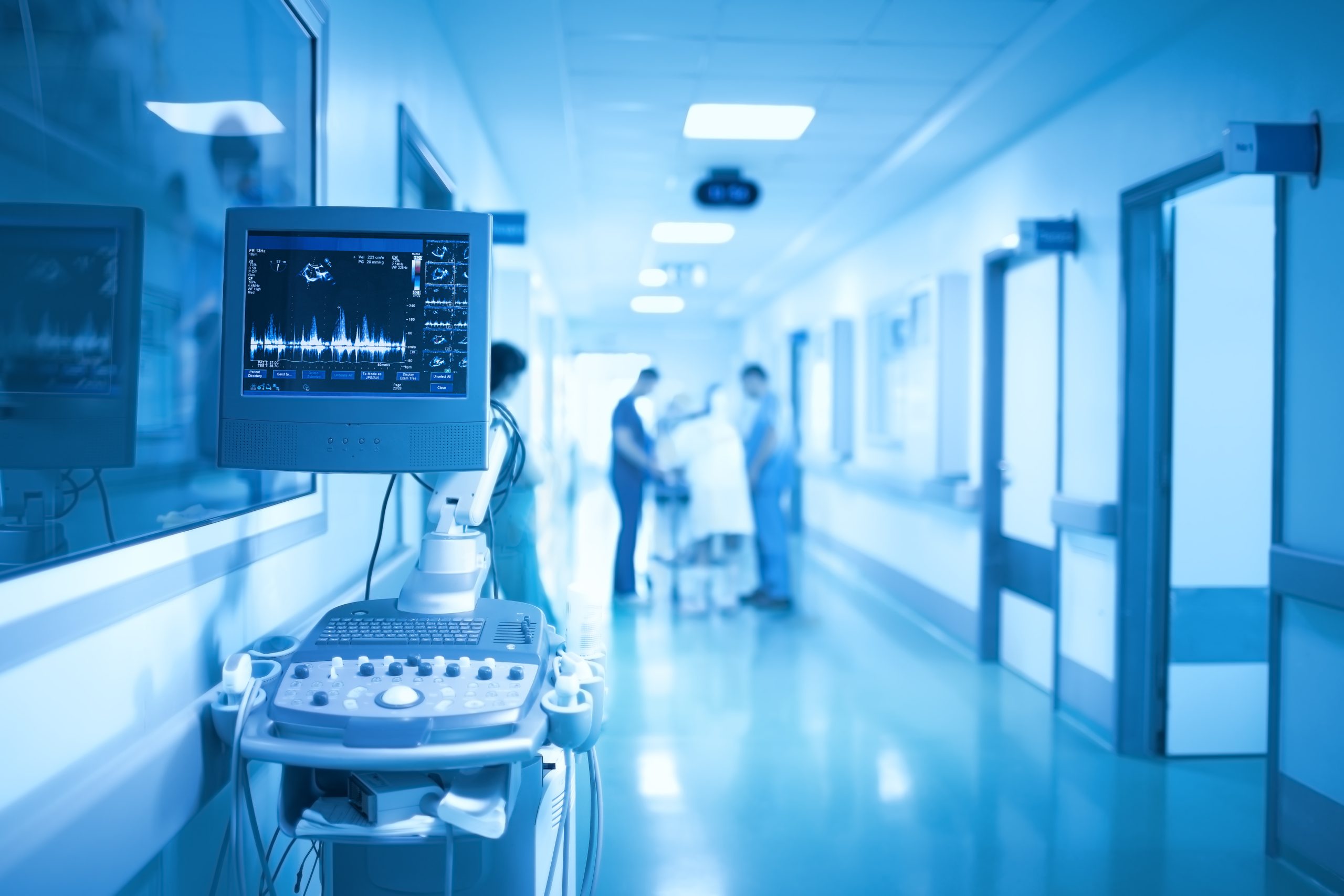
At Ruby Hall Clinic, we are committed to achieving and exceeding global standards in radiology. Our department strictly adheres to international safety protocols, ensuring radiation exposure is kept to the bare minimum. We employ advanced imaging techniques used by leading hospitals worldwide, making us a trusted name for high-quality diagnostic care.

Behind every scan is a team of highly skilled professionals. Our radiologists, technicians and support staff are not only experienced but also continuously trained in the latest advancements in medical imaging. Their expertise ensures every report is accurate, timely and actionable, giving patients and doctors confidence in their treatment pathways.
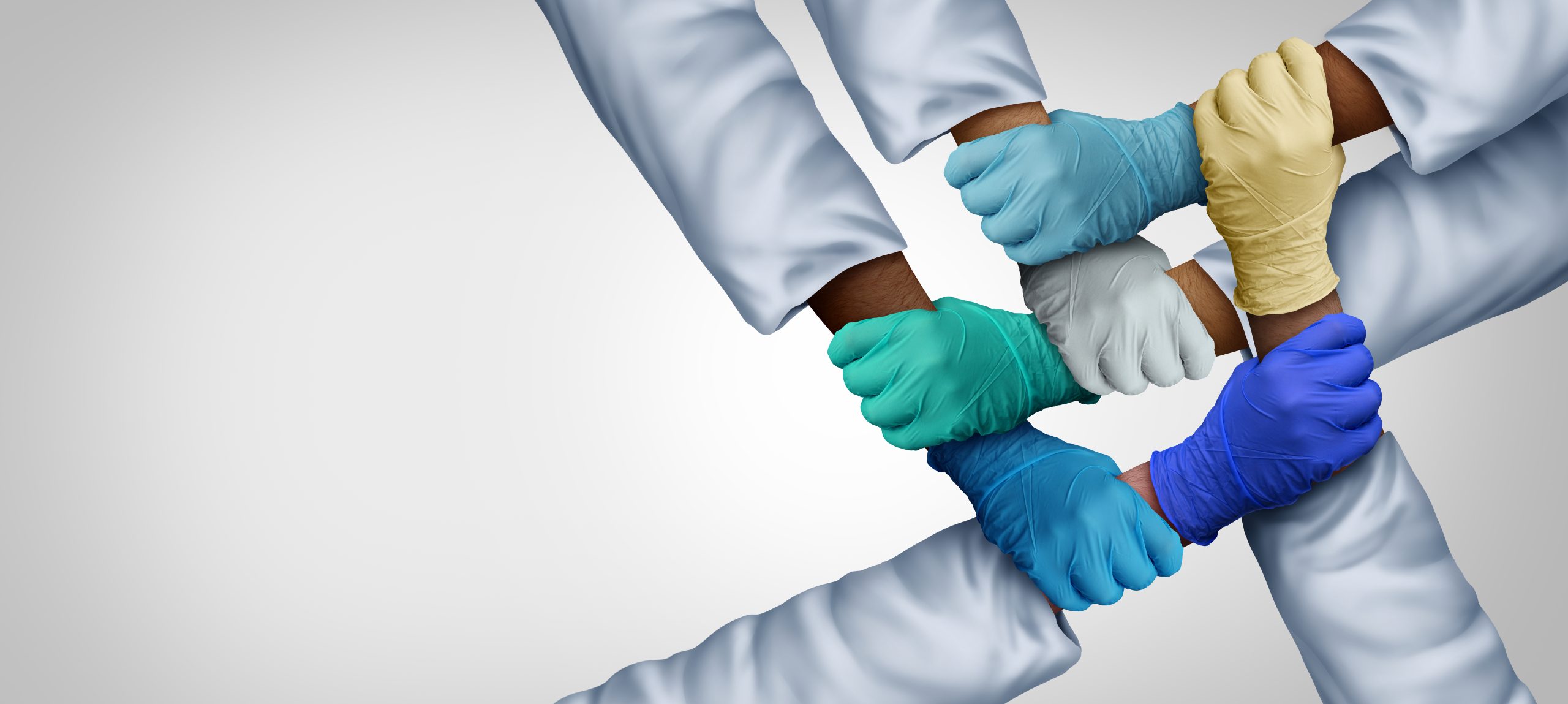
At Ruby Hall Clinic, diagnostics is not an isolated process-it’s the beginning of a seamless journey toward recovery. Our Radiology Department works hand-in-hand with other specialities, ensuring smooth communication, quick report turnaround times and integrated care plans. From your first scan to the final treatment, we are with you every step of the way.

Ruby Hall Clinic is the preferred diagnostic partner for countless physicians and healthcare providers. Our reputation for accuracy, efficiency and reliability makes us the go-to choice for doctors seeking top-notch imaging for their patients.

Our department is always evolving. We invest in the latest technologies and explore emerging trends in medical imaging, such as AI-assisted diagnostics and hybrid imaging techniques. This forward-thinking approach allows us to stay at the forefront of radiology, offering solutions that others cannot.

With multiple locations and a wide range of imaging services under one roof, Ruby Hall Clinic ensures that world-class diagnostic care is within easy reach. Our streamlined appointment process and quick reporting ensure that you spend less time waiting and more time focusing on your health.
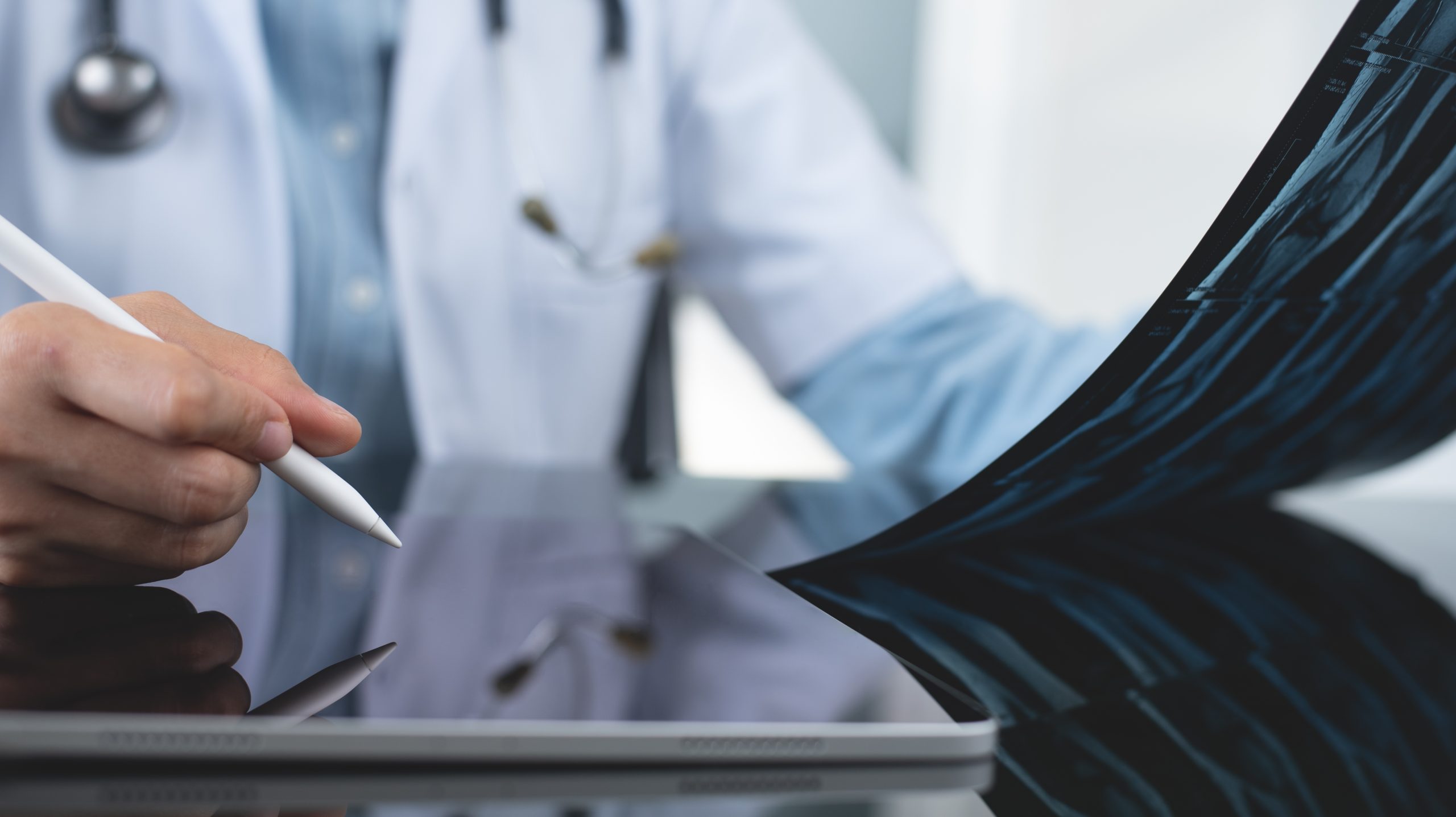
At Ruby Hall Clinic’s Radiology Department, we offer a comprehensive range of diagnostic and interventional imaging services designed to provide precise and timely diagnoses. Our department is equipped with state-of-the-art technology and our team of skilled radiologists, technologists and support staff is dedicated to ensuring the best outcomes for every patient.
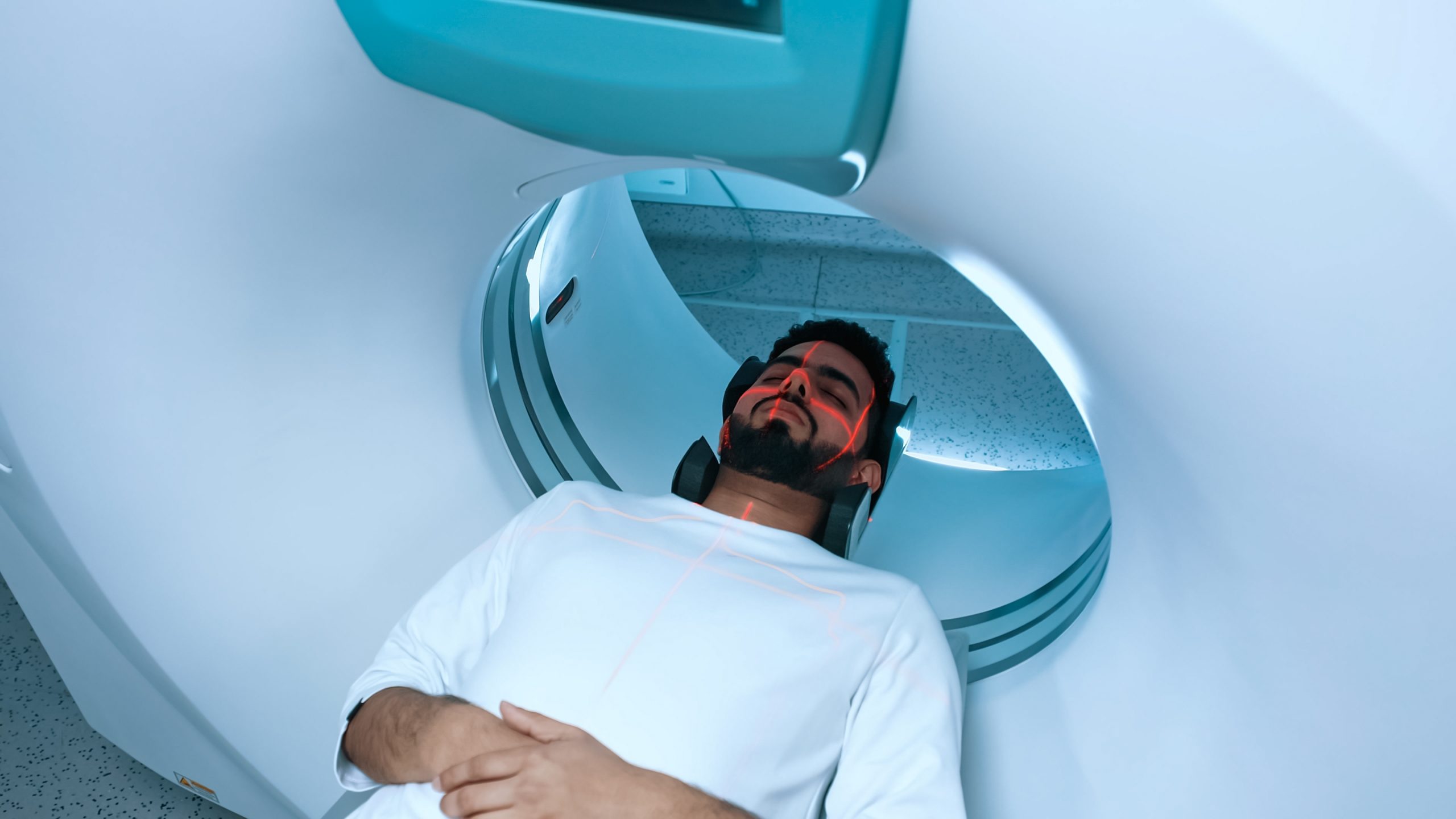
World-class CT Technology
At Ruby Hall Clinic, our commitment to precision and safety is reflected in the advanced CT systems we utilise. These world-class machines are designed to provide detailed diagnostic images and minimal radiation exposure while ensuring ensure the highest standards of accuracy and safety. Our skilled team of radiologists and technicians is dedicated to delivering reliable results while ensuring your comfort every step of the way.
What is a CT Scan?
A CT (computed tomography) scan is a sophisticated imaging procedure that combines X-rays with advanced computer technology to create cross-sectional views of the body. These highly detailed images enable healthcare professionals to diagnose a wide range of conditions with exceptional clarity.
When is a CT Scan Needed?
CT scans are a crucial diagnostic tool in many areas of medicine, including:
What to Expect During Your CT Scan
Before the Procedure:
Proper preparation is essential to ensure accurate imaging:
During the Procedure:
Contrast Material Administration
Contrast materials enhance the visibility of specific organs and structures, making it easier to detect abnormalities. They are administered in one of the following ways:
While contrast materials are generally well-tolerated, you might experience a brief sensation of warmth or a metallic taste when injected. Our team will closely monitor you throughout the procedure to ensure your comfort and safety.
After the Procedure:
Understanding Your Results
The images obtained during your scan will be analysed by our expert radiologists, who will prepare a comprehensive report. The findings will be shared with your referring doctor, usually within 24–48 hours. In urgent cases, results are expedited to facilitate timely medical care.
Guidelines for Patients
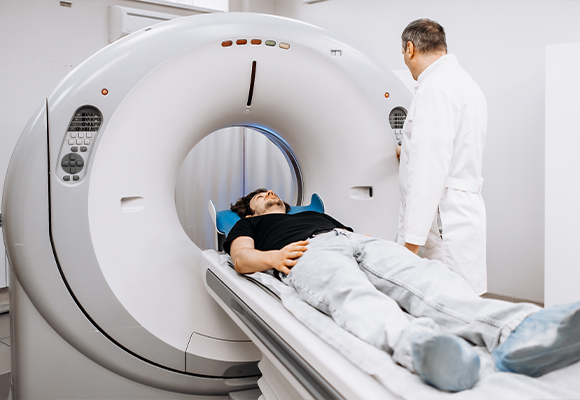
Cutting-Edge MRI Technology
At Ruby Hall Clinic, our dedication to precision and patient safety is reflected in our cutting-edge MRI systems. These state-of-the-art machines provide high-resolution diagnostic images without radiation exposure, ensuring the highest standards of accuracy, safety and patient comfort. Our expert team of radiologists and technicians is committed to delivering reliable results with a seamless and reassuring experience.
What is an MRI Scan?
Magnetic Resonance Imaging (MRI) is an advanced imaging technique that uses powerful magnetic fields and radio waves to generate high-resolution images of the body’s internal structures. Unlike CT scans, MRI does not use radiation, making it a safe and effective choice for imaging soft tissues, organs and the nervous system.
When is an MRI Scan Needed?
MRI scans are widely used in diagnosing and monitoring a variety of conditions, including:
Risks
MRI is generally a safe and non-invasive procedure, but certain risks should be considered:
What to Expect During Your MRI Scan
Before the Procedure:
Proper preparation is essential to ensure accurate imaging:
During the Procedure:
After the Procedure:
Guidelines for Patients
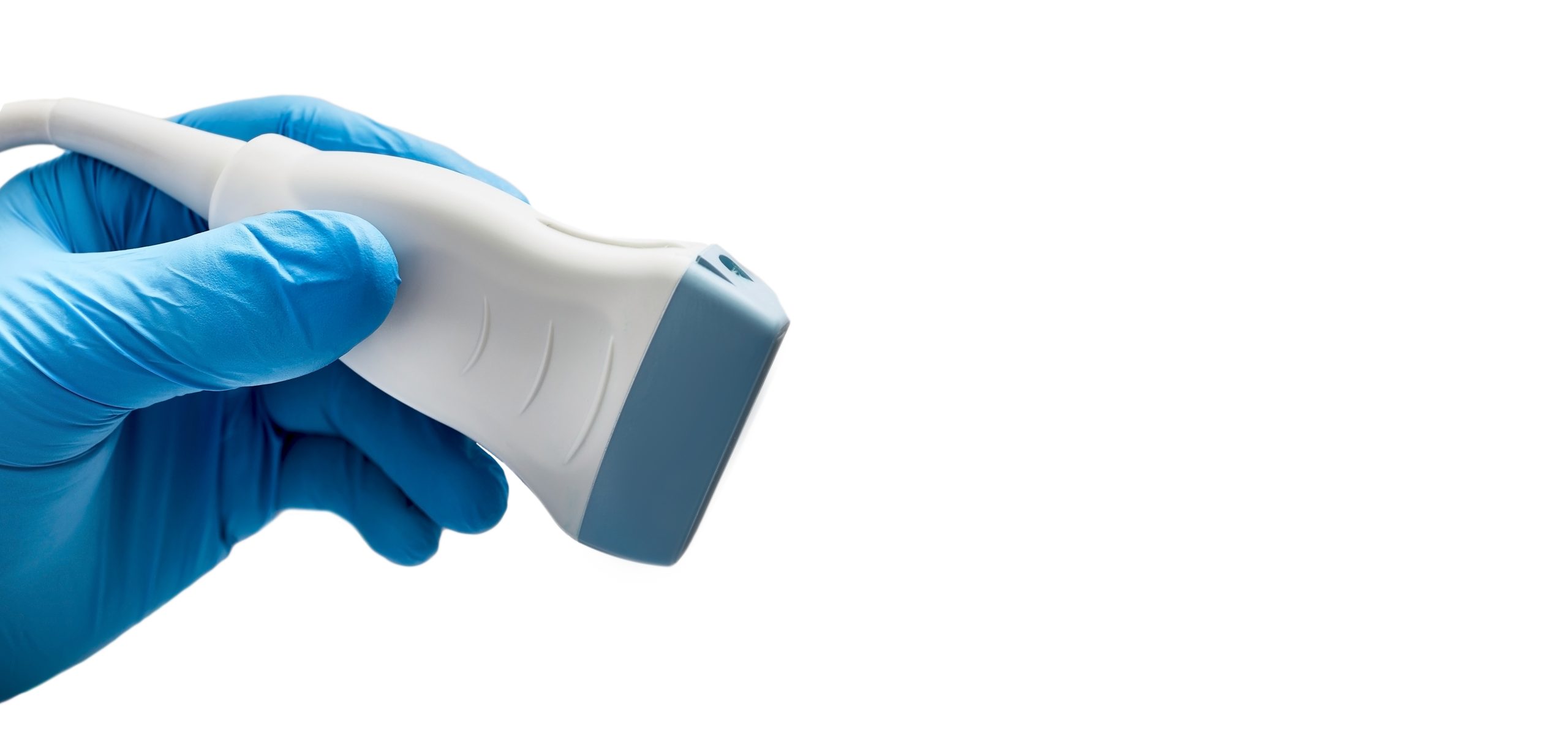
Advanced Ultrasound Technology at Ruby Hall Clinic
At Ruby Hall Clinic, we offer cutting-edge ultrasound imaging designed to provide real-time, high-resolution visuals of internal organs, tissues and blood flow. Our department is equipped with the latest in ultrasound technology, including 3D Colour Doppler, high-frequency probes and portable ultrasonography—ensuring detailed and accurate diagnostics across a wide range of medical specialities.
Whether for routine wellness checks, obstetric evaluations, or guided interventional procedures, our skilled team of radiologists and sonographers delivers precise results with compassion and professionalism.
What is an Ultrasound Scan?
Ultrasound, also known as sonography, is a non-invasive imaging technique that uses high-frequency sound waves to create real-time images of the body’s internal structures. Unlike X-rays and CT scans, ultrasound does not use radiation, making it a safe and effective diagnostic tool for patients of all ages, including pregnant women and children.
When is an Ultrasound Scan Needed?
Ultrasound is used in a variety of medical applications, including:
What to Expect During Your Ultrasound
Before the Procedure:
Proper preparation is essential to ensure accurate imaging:
During the Procedure:
After the Procedure:
Understanding Your Results
Our expert radiologists will analyse the ultrasound images and prepare a detailed report for your referring doctor. In most cases, results are available within 24 – 48 hours and urgent cases are prioritised for immediate assessment.
Guidelines for Patients
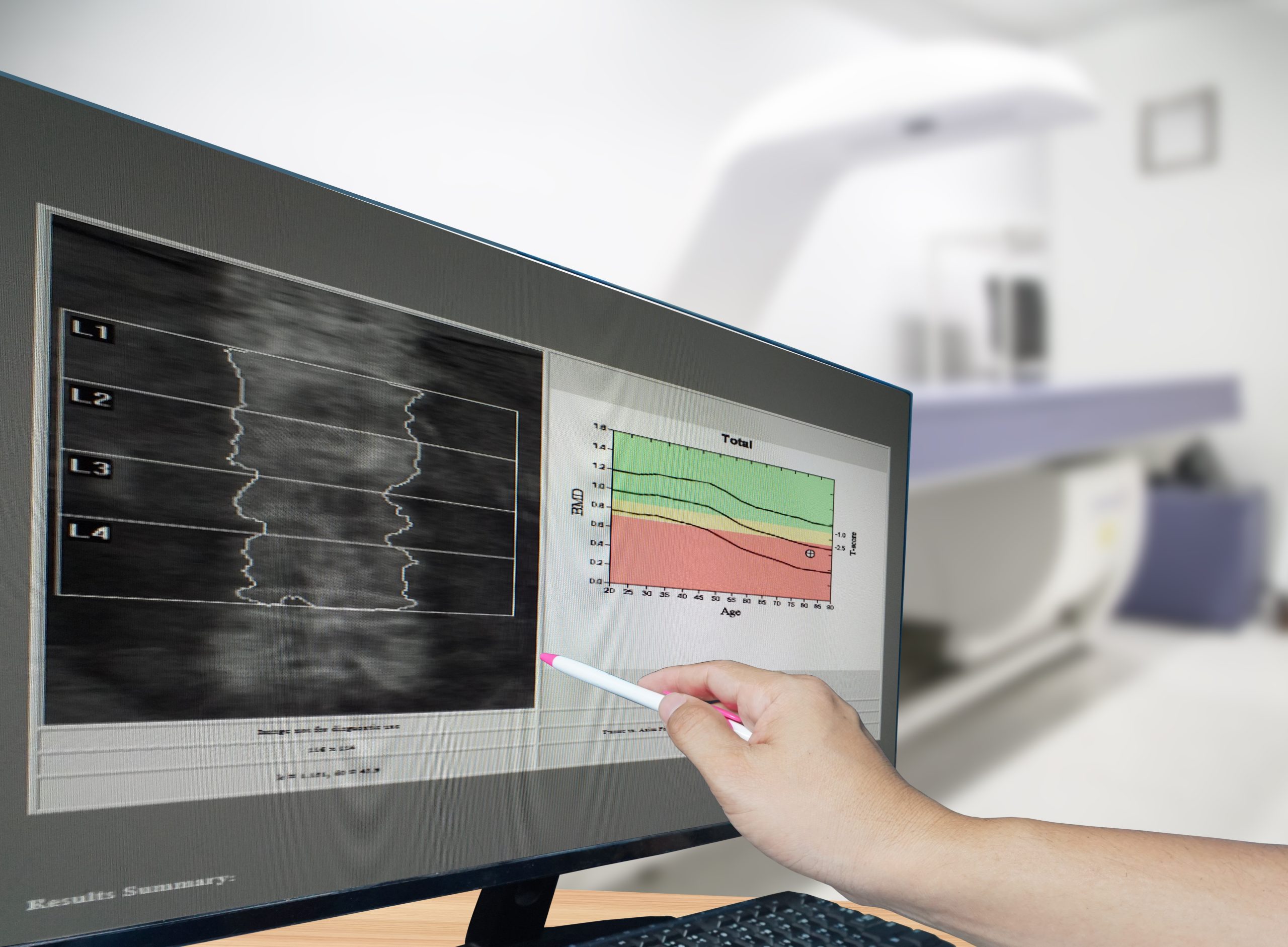
Assessing Bone Health with Precision
At Ruby Hall Clinic, we offer advanced bone density scanning using DEXA (Dual-Energy X-ray Absorptiometry) technology—an essential tool in the early detection and management of osteoporosis and related bone conditions. This safe, low-radiation test provides accurate measurements of bone mineral density (BMD), enabling clinicians to assess fracture risk and monitor treatment effectiveness with precision.
What is a Bone Density Scan?
A bone density scan is a quick, non-invasive test that measures the strength and density of bones, typically in the spine, hip or forearm. It uses two low-dose X-ray beams to calculate how much calcium and other minerals are present in a given segment of bone. The test is completely painless and usually takes less than 20 minutes.
When is a Bone Density Scan Recommended?
Your doctor may recommend a DEXA scan if you:
What to Expect During Your Test:
Before the Test:
Understanding Your Results
The results are reported as T-scores and Z-scores, comparing your bone density to that of a healthy young adult and to someone your age, respectively.
Guidelines for Patients
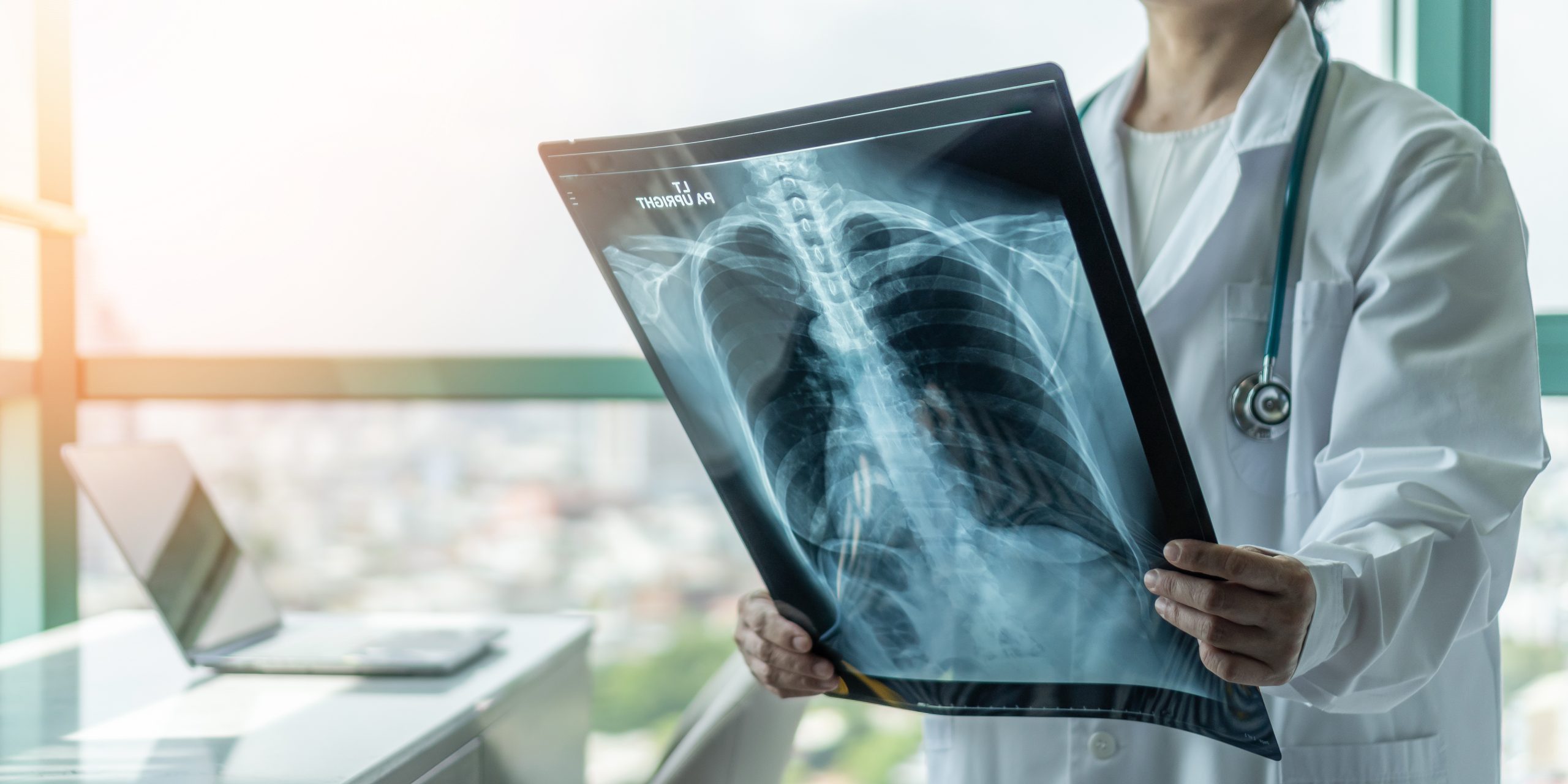
At Ruby Hall Clinic, our X-ray facilities combine precision, speed and safety to deliver high-quality diagnostic imaging. As one of the most commonly used medical imaging techniques, X-rays allow our skilled radiologists to assess bones, joints and soft tissues with remarkable clarity. We use advanced digital X-ray technology, ensuring minimal radiation exposure while providing accurate and timely diagnoses.
Shimadzu Flexavision F3 – Fully Digital R/F Mobile X-ray System
The DRX is a filly digital system with portable wireless dynamic flat-panel detectors (FPD) for routine and emergency radiology with lowest radiation. The FPD provides a large field of view capable of fluoroscopic applications.The system supports a wide range of examinations, from barium enema to gastrointestinal, non-vascular interventional radiology procedures, DIP and other urinary tract contrast media acquisitions.
What is an X-Ray?
An X-ray is a non-invasive imaging technique that uses a small dose of ionising radiation to capture images of the body’s internal structures. This quick and painless procedure is essential for detecting fractures, infections, lung conditions and various other medical concerns.
Why is an X-Ray Done?
X-rays are used to diagnose a range of conditions, including:
Before the Procedure:
Proper preparation is essential to ensure accurate imaging:
During the Procedure:
After the Procedure:
Safety and Radiation Exposure
At Ruby Hall Clinic, patient safety is our top priority. While X-rays involve exposure to a small amount of radiation, our advanced digital imaging technology ensures that doses are kept to an absolute minimum.
Thanks to these advancements, X-rays remain one of the safest and most efficient diagnostic tools available.
Guidelines for Patients
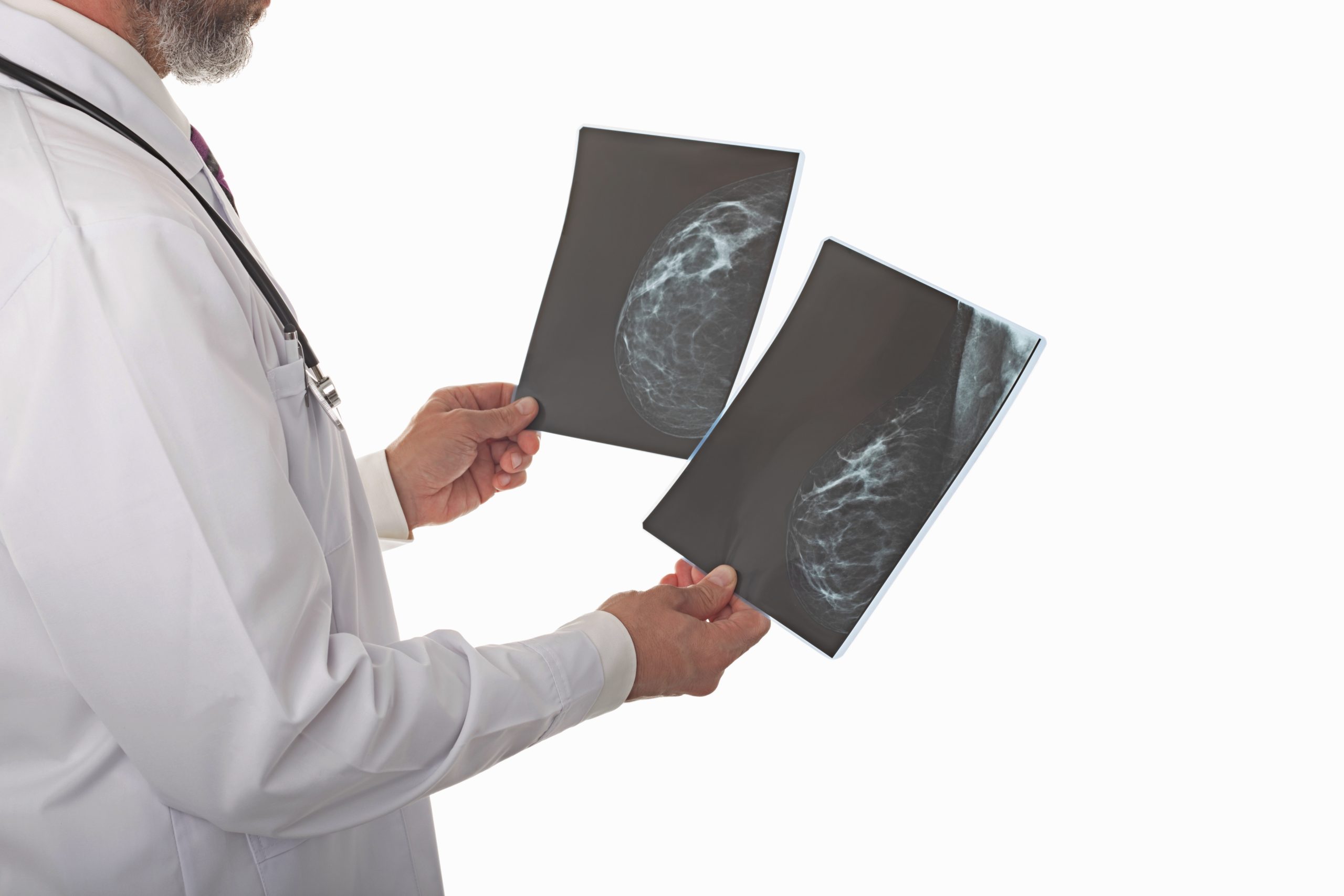
Advanced Breast Imaging for Early Detection
At Ruby Hall Clinic, we understand the importance of early detection when it comes to breast health. That’s why our Mammography Services are designed to combine advanced technology with expert care in a compassionate and reassuring environment. Whether for routine screening or diagnostic evaluation, our all-women team of radiologists, sonologists, breast surgeons, radiation oncologists and genetic counselling experts ensures a seamless, personalised experience tailored to each patient.
GE Pristina Digital 3D Tomosynthesis
Ruby Hall Clinic is proud to be the first in Asia to offer the GE Senographe Pristina Digital 3D Mammography system—a breakthrough in patient-centric breast imaging. What sets this system apart?
Self-Compression Tool: Unique to the Pristina platform, this feature empowers women to control the compression during their mammogram, enhancing comfort and reducing anxiety.
High-Resolution 3D Imaging: Enables clearer, more accurate views of breast tissue, especially beneficial for women with dense breasts.
Ergonomic Design: Built with women in mind, reducing physical strain and allowing easier, more precise positioning for both patient and technologist.
Comprehensive Support: The dedicated breast imaging suite is operated by a highly skilled and empathetic female-led team, ensuring privacy and comfort at every step.
What is a Mammogram?
A mammogram is a specialised X-ray examination of the breast used to detect and evaluate changes in breast tissue. It plays a crucial role in the early diagnosis of breast cancer, often identifying abnormalities before symptoms appear. Mammography can detect tumours that are too small to be felt and help distinguish between benign and suspicious findings.
There are two main types:
When is Mammography Recommended?
Mammography is typically advised:
What to Expect During the Procedure?
After the Procedure:
Guidelines for Patients
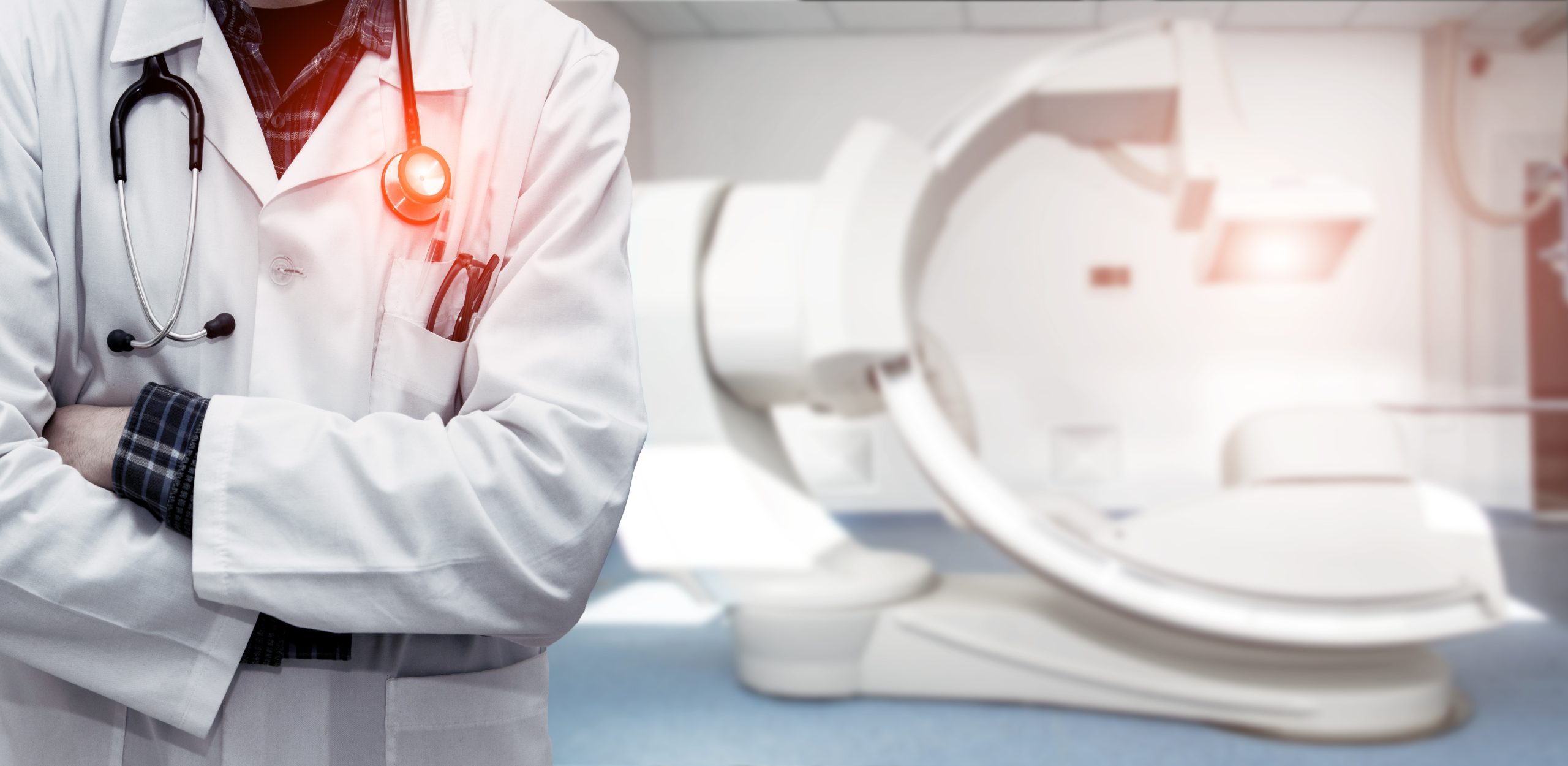
Minimally Invasive, Targeted Treatment
Ruby Hall Clinic’s Interventional Radiology services are led by a team of highly skilled specialists, supported by state-of-the-art imaging systems such as the Philips Ingenuity Core128 and Siemens Somatom Force VB 30, ensuring accuracy, safety and comfort for every procedure.
What is Interventional Radiology?
Interventional Radiology (IR) combines the precision of advanced imaging with minimally invasive techniques to diagnose and treat various medical conditions. Using real-time guidance from CT or ultrasound, our radiologists can access even the most delicate areas of the body, offering an alternative to conventional surgery with shorter recovery times and fewer complications.
When Is Interventional Radiology Needed?
Interventional Radiology is typically recommended when traditional diagnostic methods or surgical interventions are either too invasive, carry higher risk, or are not suitable for the patient due to underlying health conditions. It plays a crucial role in:
Whether for diagnosis or treatment, IR is often the first step towards a more accurate, safer and faster road to recovery. At Ruby Hall Clinic, our team ensures that every procedure is thoughtfully chosen and meticulously performed, with the patient’s comfort and outcome as the highest priorities.
Types of Procedures
CT Guided Procedures
Spinal and Neurological Imaging
Contrast Studies and Track Visualisation
Ultrasound-Guided Procedures
What to Expect for the Procedure?
Before the Procedure:
During the Procedure:
After the Procedure:
Guidelines for Patients

Precision. Preservation. Peace of Mind.
At Ruby Hall Clinic, our comprehensive suite of image-guided breast interventions is designed to detect abnormalities early, guide treatment effectively and minimise trauma to healthy tissue. From biopsies and wire localisation to vacuum-assisted scarless surgery, every procedure is conducted with the utmost attention to detail, safety and patient comfort.
What are Breast Interventions?
Breast interventions at Ruby Hall Clinic offer a sophisticated blend of diagnostic accuracy and therapeutic precision, tailored specifically for breast-related conditions. Using state-of-the-art imaging guidance — including ultrasound, mammography and stereotactic systems — we perform targeted procedures that eliminate the need for extensive surgery in many cases.
When Are Breast Interventions Needed?
Breast interventions are recommended when:
These interventions are minimally invasive, often done under local anaesthesia and allow for faster recovery, better cosmetic outcomes and accurate pathology reports to guide the next steps in care.
Types of Breast Interventions Offered
What to Expect During the Procedure?
After the Procedure:
Guidelines for Patients



